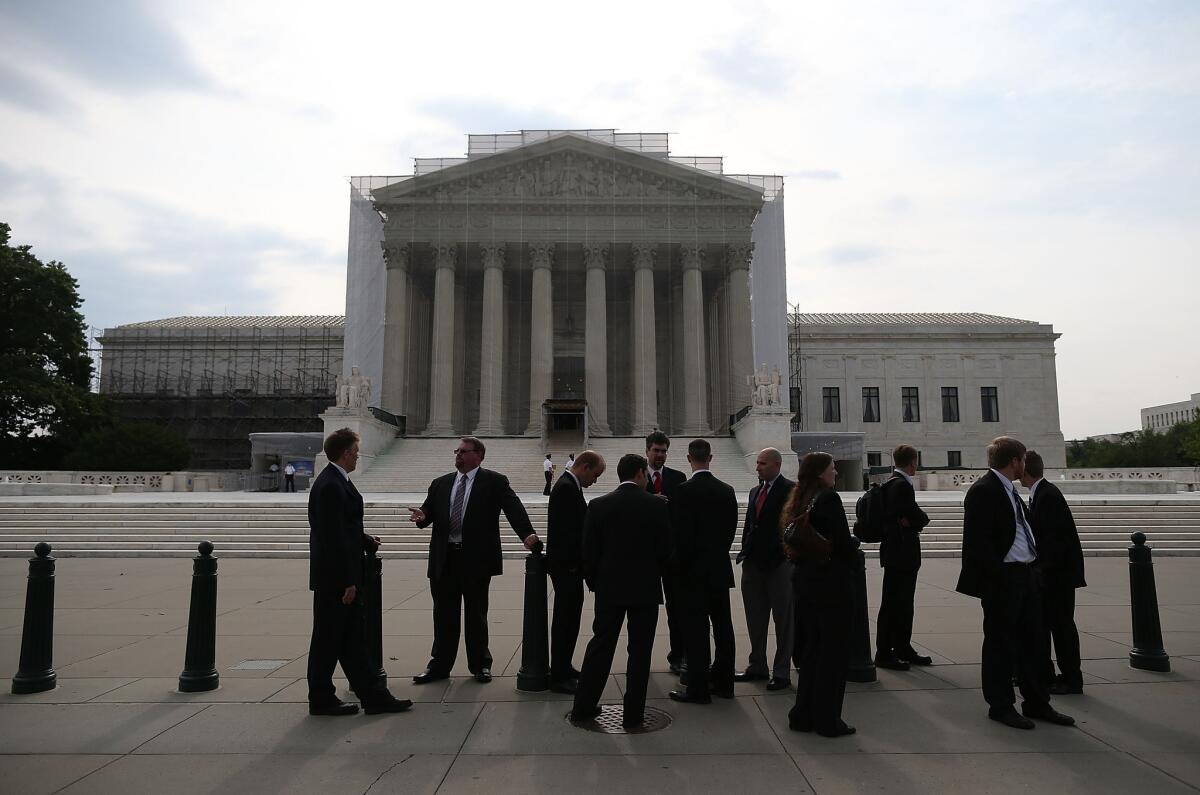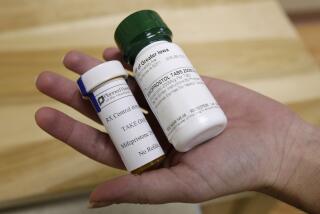Supreme Court rules for generic drugs, against ‘pay for delay’

- Share via
WASHINGTON — The Supreme Court ruled Monday that brand-name drug makers can be sued for violating the antitrust laws if they make a deal that pays a potential competitor to put off selling a generic version.
The 5-3 decision is likely to benefit consumers with lower prices. The Federal Trade Commission, which has pursued suits against the drug makers, estimated these so-called “pay for delay” deals cost consumers and health plans $3.5 billion a year.
The ruling is likely to send a warning to drug makers who wish to deter generic rivals from entering the market. A “large and unjustified” payment to settle a patent dispute can trigger an antitrust claim against the brand-maker, the court said.
This case posed a conflict between the patent laws, which give patent holders a type of monopoly, and the anti-trust laws which forbid monopolies and anti-competitive deals.
PHOTOS: 2013’s memorable political moments
Drug patents can last for 20 years, but sometimes, the patents are questionable. For example, a drug company may obtain a new patent for 20 years by slightly changing the formula for a drug or how it is administered to a patient. In these instances, a generic competitor may sue, seeking a ruling that the extended patent is invalid.
Often, these suits end in a settlement in which the brand-name maker agrees to pay its rival to delay selling a generic for several years.
Such deals benefit the brand-maker with continued high profits, and they send money to the generic maker. Consumers, however, pay the cost through higher prices.
In Monday’s opinion by Justice Stephen G. Breyer, the high court announced a middle-ground position. It rejected the view of most lower courts that drug makers can never be sued for an antitrust violation so long as they are defending a valid patent whose 20-year life has not expired.
At the same time, the justices did not rule these “pay for delay” deals are usually illegal under the antitrust laws, as the FTC had argued.
Breyer said a “large and unjustified reverse payment” from a brand-name maker to a generic maker can trigger an antitrust suit. But the outcome in each case will depend on the facts. A judge will have to decide whether the payment was a reasonable way to end a lawsuit or an unjustified bid to ward off competition, he said in FTC vs. Actavis.
Justices Anthony Kennedy, Ruth Bader Ginsburg, Sonia Sotomayor and Elena Kagan joined with Breyer.
Chief Justice John G. Roberts Jr. dissented and said the court’s “novel approach” will prevent companies from settling disputes. “I would keep things as they were,” he said, “and not subject basic questions of patent law to an unbounded inquiry under anti-trust law.”
Justices Antonin Scalia and Clarence Thomas joined his dissent, while Justice Samuel Alito took no part in the decision.
Follow Politics Now on Twitter and Facebook
More to Read
Get the L.A. Times Politics newsletter
Deeply reported insights into legislation, politics and policy from Sacramento, Washington and beyond. In your inbox twice per week.
You may occasionally receive promotional content from the Los Angeles Times.










